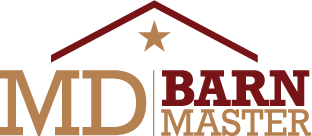Barn fires — every horse owners’ worst nightmare. The recent months have seen an unusual increase in the number of tragic stable fires. A March 10th barn fire near Chicago, IL, killed six horses at a small race horse farm. A February 21st barn fire at a Michigan Thoroughbred farm killed 27 horses and sent an injured employee to the hospital. A barn fire in New Jersey in January killed 22 show horses. These are just three of the past year’s most recent horrific fire incidents. Barn fires like these are a serious cause of death and injury to horses and can cost hundreds of thousands of dollars in property damage and losses.
Barn fire tragedies, however, are often preventable. It’s important to know the facts about fires and to take the appropriate safety precautions.
According to the National Fire Prevention Association (NFPA), defective or improperly used heating equipment is the number one cause of barn and stable fires. During cold winter months, stable owners may rely on any number of the following: space heaters, heated buckets, portable water heaters, etc. Each one of these, if defective or improperly used, can present an increased fire risk.
NFPA also reports that nearly half of all barn and stable fires occur between the hours of 7 p.m. and 7 a.m., a time period when there is less likely to be a watchful eye present. Also of note, more stable and barn fires happen during the months of January, February and March, times when those devices previously listed are more likely to be used but when there may be less traffic in and out of the barn in general.
The barn structure itself can be a major contributor to how quickly a stable fire spreads. Stables are often wooden structures, and they are often airy and filled with combustible materials such as wood stalls and hay.
One way to lessen the impact those factors can have is to store combustibles properly, manage hay well and keep barns neat and clean. Today, however, there are also better options in terms of the structures themselves that can lessen the risk of devastating barn fires. An obvious way to decrease the risk of a tragic barn fire is to make sure your stable is the safest choice possible. Barns like those available from MDBarnmaster can greatly reduce fire risk. MDBarnmaster barns have been given a 0% flame spreading rating. Not only is the all-steel exterior structure of an MDBarnmaster barn extremely fire safe, it is chew proof and kick proof as well making these structures both safe and low maintenance. Combined with a stall system that has been perfected over the last 30 years, MDBarnmaster barns can offer great peace of mind to horse owners and equine professionals.
Beyond giving your horses or ponies the safest possible home, here are some additional safety tips to help reduce your risk of experiencing a devastating barn fire.
Be prepared. Inspect all electrical equipment thoroughly when it is put into use. Then, inspect this same equipment on a regular basis throughout the winter or months of use. Do not use equipment or cords in poor condition. Avoid running excessive electrical cords. Be sure you have working fire extinguishers in the barn and make them easily accessible. Check fire extinguishers periodically as part of your regular maintenance and care. Make sure electrical fixtures in the barn are free of dust, dirt, cobwebs, chaff, hay or other combustible materials. Keep your barn clean and as free of dust, trash, oils, cleaning rags and other fire hazards as possible. Keep barn aisle ways clear. Have a barn evacuation plan in the event of a fire. Also, keep halters and leads easily accessible to each horse in case a quick evacuation is needed.
Barns can be retrofitted with sprinkler systems. New barns may be built to include these.
Consider inviting your local fire department out to tour or inspect your facility. See if they have suggestions. Address how easy your barn is to reach for them. Will their big trucks be able to access your property and get to your barn? Address any concerns fire professionals might have as soon as possible.
Store fuel or fuel tanks well away from the barn. If possible, store hay and other combustibles in a separate structure.
The 2011-2012 winter season has resulted in a higher than normal number of barn fires. Take steps to make sure your barn and horses don’t become more tragic statistics. Pay attention to barn fire safety matters and keep MDBarnmaster stables, with their 0% fire spread rating, in mind to upgrade your equine home to the safest barn possible.
For more information on preventing Barn Fires visit: www.firesafetyinbarns.com

